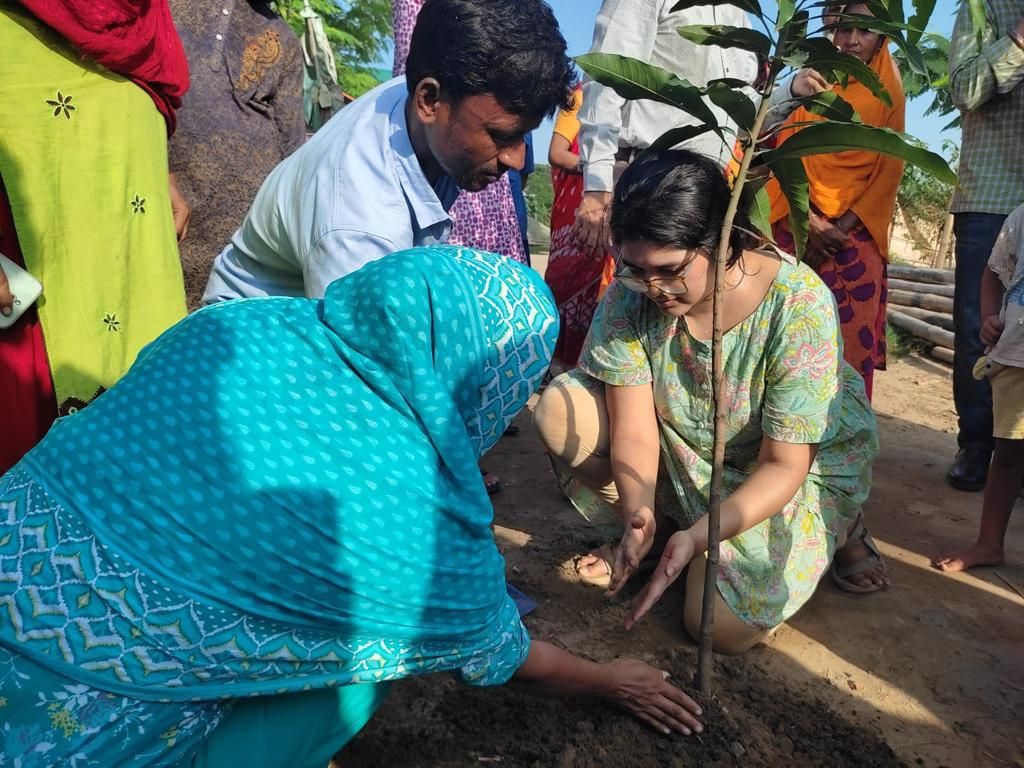Can nature save us? Takeaways from Climate Week NYC
By Sabrina Nagel, Puninda Thind, and Amal Ridene Tue, Oct 8, 2024
While it might seem contradictory to talk about nature in one of the largest cities in the world, even a city like New York relies on its natural ecosystems.
Over the past few decades, New York has invested in nature-based solutions. For instance, to safeguard its watersheds, the city incentivized local farmers to use sustainable practices and reduce pollution. This nature-based approach proved to be cheaper than other technical options, creating value for farmers while protecting the watershed.
Yet many of nature’s services remain unpriced and unpaid for.
That critical gap was at the top of the Climate Week NYC agenda. Throughout the week, it was remarkable that the biggest insurers, investors and banks were engaging in these conversations.
Now, private sector stakeholders are increasingly willing to build the business case for nature-based solutions, showcase best practices, and discuss how nature can be mainstreamed in their strategies.
As nature losses increase as a result of climate change and land management practices, the risks of losing that economic asset are growing.
In fact, the World Economic Forum estimates that $44 trillion of economic value—over half of the world’s GDP—is dependent on nature. And the economic risks do not stop there. Nature is also a shield against climate losses. Trees cool boiling cities, and wetlands function as natural sponges through heavy rainfalls.
Without rethinking how we develop and scale nature-based solutions, the rapid decline in biodiversity and ecosystems poses an insurmountable threat to people and the entire planet.
Why are nature-based solutions so important?

With risks come opportunities. Public and private investors are increasingly interested in nature-based solutions, which was clear at this year’s Climate Week. Companies, banks and investors not only joined but also led conversations throughout the week.
Nevertheless, we are far from mainstreaming investments into nature. GAWA Capital, for instance, is leading the way with investment funds like their Huruma Fund and their upcoming Kuali Fund. But these siloed efforts can not cover the rising cost of adaptation. Governments must prioritize these investments. By 2050, these solutions could prevent $393 billion in potential losses in developing countries. Even more striking is that these solutions are often low-cost and easily replicable.
But to achieve impact, they must be implemented now.
In a little over a year, Brazil will host the 2025 UN Climate Change Conference (COP30). At Climate Week, the Brazilian COP30 presidency set a precedent. Many of their events focused heavily on nature. However, Brazil is focusing not only on impactful solutions but also on the financing mechanisms to scale them.
As nature-based solutions and financing become a more integral part of climate conferences, Brazil is just one of the countries recognizing the clear benefits of a transition towards a nature-positive economy. With their leadership at COP30, this topic will likely become a priority for others around the world, too.
The way forward at COP30
The good news is that public and private investors are recognizing the potential of nature. However, the world still needs to align on the best way forward.
There are a number of pain points, including limited physical climate risk data to capture the baseline and investment standards. The public sector must address these challenges and develop clear investment pipelines for nature-based solutions that bring together investors, project developers, governments, and financial institutions.
At COP29 and COP30, the structure of finance must also be on the negotiating table. Traditional finance cannot protect people at the speed and scale we need. Concessional financing must be explored and refined, allowing for mechanisms like blended insurance that protect natural and human capital beyond the traditional year-long coverage period.
The COP presidencies—both in Azerbaijan and Brazil—could play a significant role through their convening power and network of regional actors. By developing a clear pipeline, these upcoming conferences could finally move the needle.
Sabrina Nagel is the senior advisor for global policy and finance for the Climate Resilience Center. Puninda Thind is the finance nature lead for the UN Climate Change High-Level Champions team. Amal Ridene is the finance youth fellow for the UN Climate Change High-Level Champions team. The opinions expressed here are the authors’ alone.


